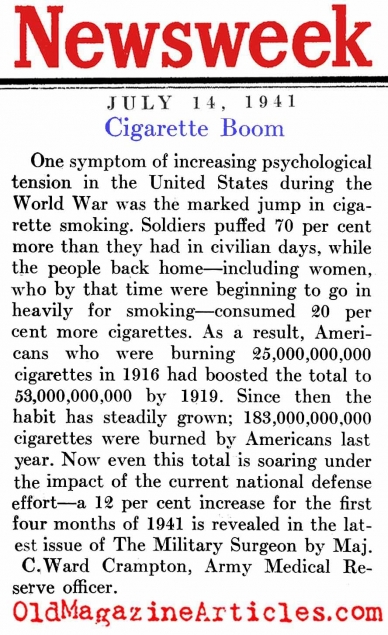Cigarette smoking was far more prevalent in the United States after the First World War than it was in earlier days; this is largely due to the free cigarettes that were widely distributed among the nations soldiers, sailors and Marines during that conflict - and this is the subject of the attached article. It was written by Benedict Crowell (1869 - 1952), who served as both the Assistant Secretary of War and Director of Munitions between 1918 and 1920 - and although his column informs us that numerous tobacco products were dispersed throughout the ranks on a seemingly biblical scale, he does not touch upon the tragic topic of the addictions that soon followed (contrary to popular belief, the American medical establishment had their suspicions about tobacco long before the war).
"Probably 95% of of the soldiers of the American Expeditionary Forces used it in one form or another. In May of 1918 it was decided... to allow each soldier a certain amount of tobacco per day... The daily ration of four-tenths of an ounce was given to every man overseas who desired it. The soldier had the choice of cigarettes, smoking tobacco or chewing tobacco."
Author Rick Atkinson pointed out that the W.W. II American GIs stationed in Europe collectively smoked one miollion cigarettes each day.

- from Amazon:
